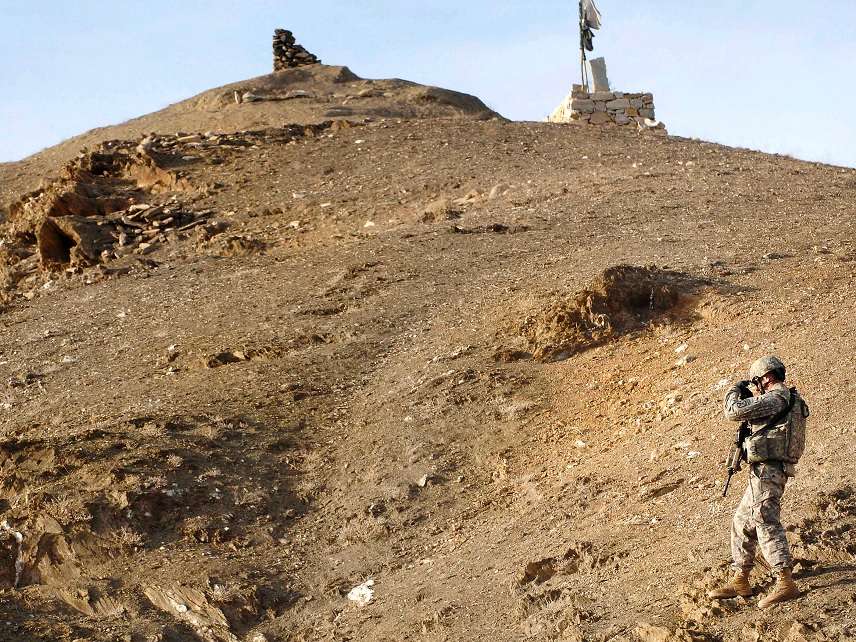Donald Trump Should End the Afghanistan War
He should resist efforts within his administration to escalate it instead.

Sen. John McCain (R-Ariz.) is blaming a lack of "strategic guidance" from the White House as the reason the U.S. isn't winning the war in Afghanistan.
Here is some strategic guidance offered at no cost to President Trump as he decides whether or not to escalate the nearly 16-year-old U.S. conflict in Afghanistan.
Withdraw from the country and cede oversight of these wars to Congress.
This is not, of course, the same advice Trump is getting from McCain and others who want him to reach a consensus within his administration to win the war.
McCain says that if Trump is unable to decide on a strategy by Saturday, he will offer an amendment to the National Defense Authorization Act that sets out a strategy. It would be far more useful for Congress to roll back its initial 2001 authorization under which the war in Afghanistan and the broader global war on terror is prosecuted.
"I urge the President to resolve the differences within his administration as soon as possible and decide on a policy and strategy that can achieve our national security interests in Afghanistan and the region," McCain said in a statement released yesterday.
Trump, who was relatively skeptical of nation-building exercises while on the campaign trail, has been hesitant to commit more troops to Afghanistan. He authorized Secretary of Defense James Mattis to increase troop levels in Afghanistan in June, but Mattis has not yet done so, likely because of Trump's ambivalence.
The ambivalence is warranted. The inability to bring the Afghanistan war to a close was one of President Obama's greatest failures, particularly in the aftermath of the 2009-2010 surge. War reporter Rajiv Chandrasekaran argued in his 2012 book on the Afghanistan war the surge had created a unique opportunity for the U.S. to pursue fruitful negotiations between the Taliban, the Afghanistan government, and Pakistan.
Trump should resist efforts of subordinates like Lt. Gen. H.R. McMaster, his national security advisor, to push for more U.S. involvement in the Afghanistan war. Trump is the commander-in-chief. So far, however, he has deferrede to his generals, which has led to escalations of war in Iraq, Syria, and Yemen.
Afghanistan is so far removed from 9/11 that many Afghans don't know what it is. Meanwhile, the national government, supported by U.S. military power, is little better. The last president, Hamid Karzai, called Al-Qaeda a "myth" and denied that 9/11 was plotted in Afghanistan. Nevertheless he continued to accept U.S. military and financial aid.
The war in Afghanistan is a victim of incredible mission creep—it was arguably won within a few months of the initial 2001 invasion, when the U.S. toppled the Taliban and eradicated most of core Al-Qaeda. Staying in Afghanistan facilitated the return of these groups by removing the Afghan government incentive to pursue policies of stability and reconciliation and allowing it to rely on American blood and treasure instead.
When asked last month about a troop surge there, Trump said ISIS, the latest bugaboo animating the U.S. military action, was "falling fast."
Obama ran for re-election in 2012 on a promise to bring the war in Afghanistan to a responsible end. He declared combat operations "over" in 2014. Despite the rhetoric, nothing of the sort happened.
Trump has an opportunity to fulfill his predecessor's promise and to secure a real legacy builder—he should take it.


Show Comments (43)